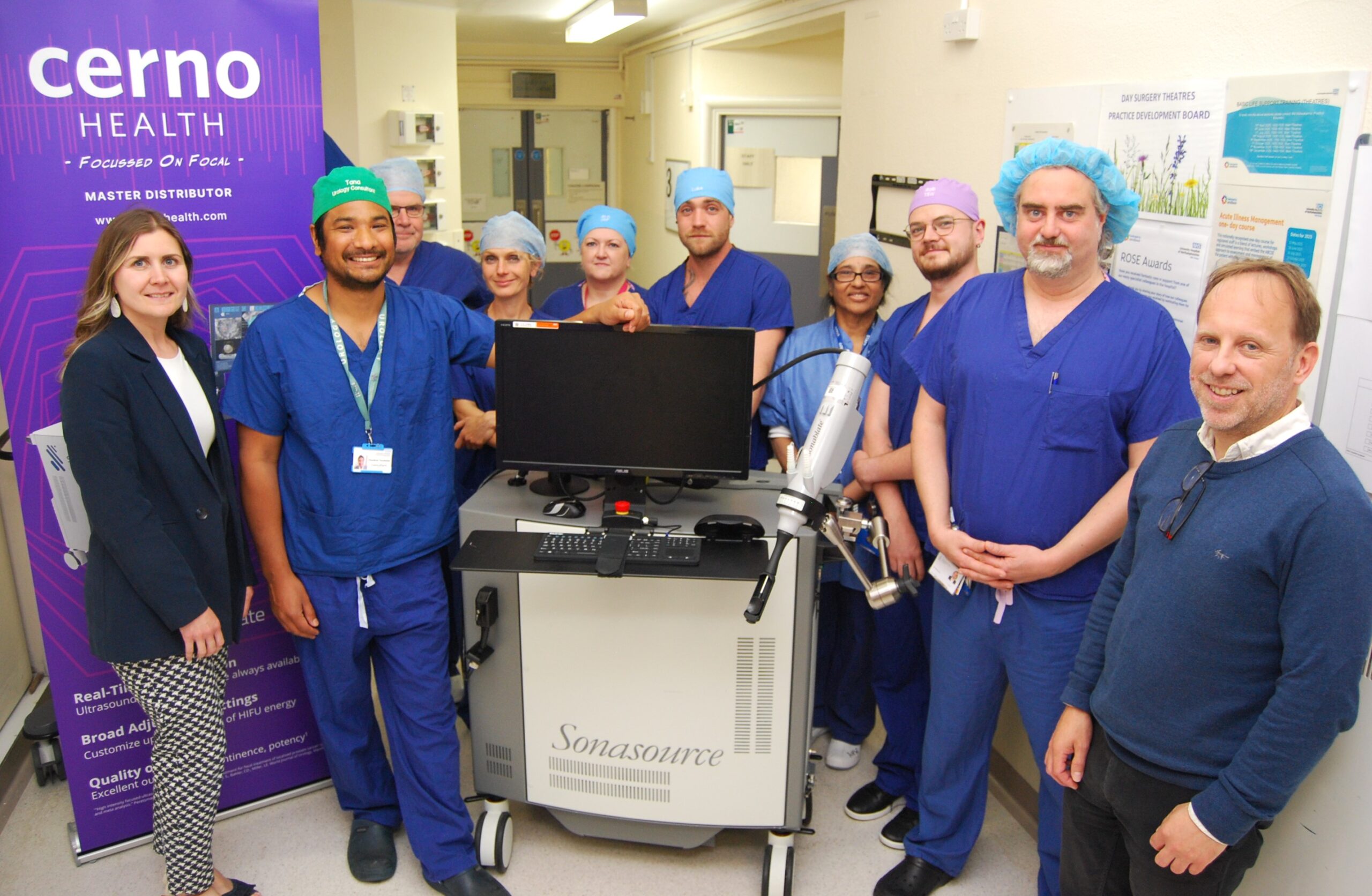Thanks to your support and generosity, we raised over £450,000 to bring focal therapy to Northamptonshire.
Prostate cancer is now one of the most common cancers in men in the UK, with one in eight men being diagnosed each year. Traditional treatments like surgery or radiotherapy can impact the whole prostate, increasing the risk of long-term side effects. Focal therapy is an advanced approach to cancer treatment that precisely targets affected areas while sparing healthy tissue. This focused approach lowers the risk of complications like urinary incontinence, erectile dysfunction, and bowel issues, leading to a faster recovery and improved quality of life.

The first patients were treated with the HIFU machine at Northampton General Hospital on the 4th June 2025. NanoKnife treatments are scheduled to begin this summer, followed by MRI-fusion biopsy diagnostics from September. Cryotherapy treatments will be introduced by the end of the year.
Transforming Prostate Cancer Care in Northamptonshire
The appeal was launched to fund a suite of focal therapy treatments that offer an alternative to radical prostatectomy, helping many people with prostate cancer avoid long-term side effects such as incontinence and erectile dysfunction.
How your donations will help
Donations to our appeal will support University Hospitals of Northamptonshire’s vision to be the first NHS centre in the Midlands to offer a focal therapy service, all at one site. Currently focal therapy is only available at a few hospitals around the country or privately.
Focal Therapy Appeal
-
£ 450,000
Fundraising target
-
£ 487,938
Raised so far
Appeal purpose
This appeal is to raise funds to provide equipment to enhance the Focal Therapy service at University Hospitals of Northamptonshire (UHN). These innovative treatments offer less invasive option for eligible prostate cancer patients, helping to preserve quality of life while delivering effective care. In the event we exceed or fall short of our fundraising targets, funds raised will be allocated to projects as close to the original intention as possible. Any surplus funds currently held or received in future will be used to further enhance the focal therapy service at UHN or where the need is greatest. Should substantial additional developments or equipment be required for the service, these may be supported through a future, separate appeal.
Our appeal is supporting the various techniques used in the service including:
High-Intensity Focused Ultrasound (HIFU) is an advanced treatment that uses multiple beams of ultrasound, precisely focused within the body. These beams pass harmlessly through surrounding tissue but deliver a powerful effect where they intersect, accurately targeting and destroying cancer cells. Approved by NICE for prostate cancer, HIFU can particularly benefit those with early-stage disease, and is usually performed as a day procedure, reducing recovery time and minimising harm to healthy tissue.
Cryotherapy treats cancer by freezing and destroying cancerous cells. A thin probe is guided to the affected area, where extremely cold temperatures are applied to kill the tumour while sparing healthy tissue. This procedure can be minimally invasive, often performed as a day case, and may reduce some of the side effects seen with more extensive surgery.
Irreversible Electroporation, commonly called Nanoknife, uses short electrical pulses to create tiny pores in cancer cells, causing them to die without significant damage to surrounding tissue. Guided by imaging, fine needles are inserted into the tumour, and precise pulses are delivered to target the cancer. This technique is minimally invasive, helps preserve healthy structures, and can often be done with a shorter recovery time compared to major surgery.
Cryotherapy and Nanoknife will allow the hospital to offer focal therapy to a greater number of patients who may not be suitable for HIFU alone.
MRI fusion biopsy combines real-time ultrasound with detailed MRI scans to more accurately pinpoint suspicious areas in the prostate. By overlaying MRI images onto the ultrasound, doctors can guide the biopsy needle exactly where it’s needed, improving the chance of detecting cancer cells. This approach is more precise than a standard biopsy, leading to better diagnosis and enabling tailored treatment decisions.
It may seem like a twist of fate to be diagnosed with prostate cancer in the middle of fundraising for this appeal, but it is now one of the most common cancers for men to be diagnosed with. Thankfully, my condition is currently at the watch-and-wait stage, meaning I may never need treatment. But if my cancer were to progress, I, like many others, would want access to a treatment that is less invasive and more comfortable. Please support this groundbreaking appealJonathan McGee – Charity CEO




